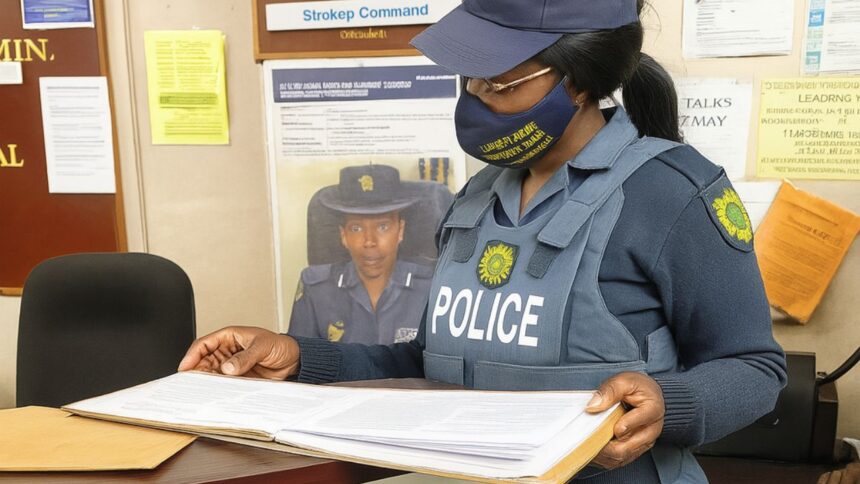What is The Age Limit for SAPS? The South African Police Service (SAPS) plays a crucial role in maintaining law and order in the country. As such, it requires a dedicated and qualified workforce to serve and protect the community. For those aspiring to join the police force, it is essential to understand the age limit for SAPS recruitment and the key eligibility criteria.
What is The Age Limit for SAPS?
The age limit for applicants looking to join the South African Police Service (SAPS) as trainees is 18 to 35 years old. This age range applies to the current recruitment drive for the 2024/2025 period, where SAPS is aiming to hire 10,000 new recruits. The age limit ensures that candidates are physically fit, mentally capable, and ready to undergo the rigors of police training, which often involves physically demanding and stressful tasks.
SAPS Recruitment Requirements
Along with the age limit, there are several key requirements for those who wish to apply to become a police trainee with SAPS. These requirements ensure that candidates possess the necessary skills, attributes, and qualifications to succeed in the police force. Let’s take a look at the essential criteria for SAPS recruitment.
1. Citizenship
One of the fundamental requirements for applying to SAPS is that applicants must be South African citizens by birth. This ensures that those who are recruited have a vested interest in the country and a strong commitment to protecting their community and its people.
- Requirement: South African citizenship by birth.
2. Age
As mentioned earlier, the age limit for SAPS recruits is between 18 and 35 years old. This criterion ensures that applicants are of the right age to undergo the training and handle the responsibilities of law enforcement. The closing date of the recruitment advertisement will serve as the benchmark for determining age eligibility.
- Age Limit: 18 to 35 years old (on the closing date of the advertisement).
3. Education
For applicants to be considered for SAPS, they must have a minimum educational qualification. The required education is a Senior Certificate (Grade 12) or an SAQA accredited NQF level 4 qualification. This requirement ensures that candidates possess the necessary literacy and problem-solving skills to handle the responsibilities and challenges of police work.
- Education: Senior Certificate (Grade 12) or an SAQA accredited NQF level 4 qualification.
4. Language Proficiency
As SAPS officers often work with diverse communities, proficiency in language is an essential requirement. Candidates must be proficient in at least English and one other official language. This ensures that police trainees can effectively communicate with the public and work within a multicultural environment, which is vital for maintaining law and order.
- Language: Proficiency in at least English and one other official language.
5. Criminal Record
Applicants must have a clean criminal record to qualify for recruitment into SAPS. This means that candidates must have no prior convictions or pending criminal cases. SAPS is highly selective in its recruitment process, ensuring that only individuals with a strong sense of ethics and integrity are allowed to join the force.
- Criminal Record: No criminal record or pending criminal cases.
6. Medical, Mental, and Physical Fitness
Being a police officer requires a high level of physical, mental, and emotional fitness. All candidates must undergo a thorough medical examination, as well as mental and physical assessments, to ensure they are fit to serve as a police officer. These fitness assessments test endurance, strength, agility, and the ability to handle stressful situations—qualities that are critical for a successful career in law enforcement.
- Fitness: Applicants must be medically, mentally, and physically fit.
7. Preparedness for Training
Lastly, candidates must be prepared to undergo rigorous police training. Training is an integral part of becoming a police officer, where recruits learn the necessary skills and knowledge to perform their duties effectively. Candidates should be mentally and physically prepared to face the challenges of training, which will include theoretical learning, physical conditioning, and tactical simulations.
- Training: Must be willing to undergo training and adhere to the police academy’s curriculum.
Additional Information for SAPS Recruitment
Application Process for SAPS Recruitment
To apply for the SAPS recruitment drive, candidates need to keep an eye on the official SAPS recruitment website or other government platforms, where recruitment advertisements and application guidelines are posted. Applications are typically done online, and prospective recruits must ensure that they submit all required documents, including their ID, academic qualifications, and proof of citizenship.
What Happens After Application?
After submitting an application, successful candidates will be invited for further screening, which may include interviews, fitness tests, and medical examinations. If selected, candidates will then be enlisted in the police training program, where they will undergo various stages of training to become fully qualified officers.
Career Advancement in SAPS
For individuals who meet the requirements and successfully complete their training, SAPS offers various opportunities for career advancement. Police officers can rise through the ranks, starting from constables to higher positions like sergeants, captains, and even senior management positions such as Major General. Career growth is often determined by experience, performance, and additional training or qualifications.
Conclusion
If you meet the age limit for SAPS and meet all other requirements, you have the opportunity to embark on a rewarding career in law enforcement. The 2024/2025 SAPS recruitment drive is set to hire 10,000 new recruits, which means there are many opportunities available to those passionate about serving and protecting South Africa. By meeting the qualifications and successfully completing the training program, you can become part of a dedicated team committed to making the country a safer place for everyone.










